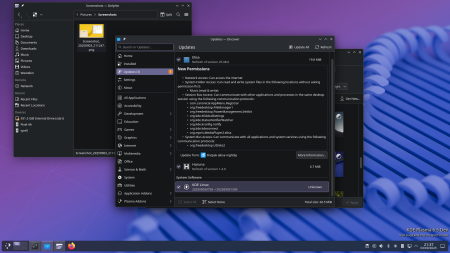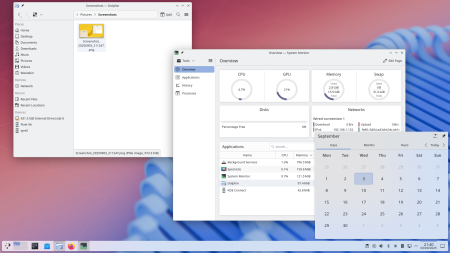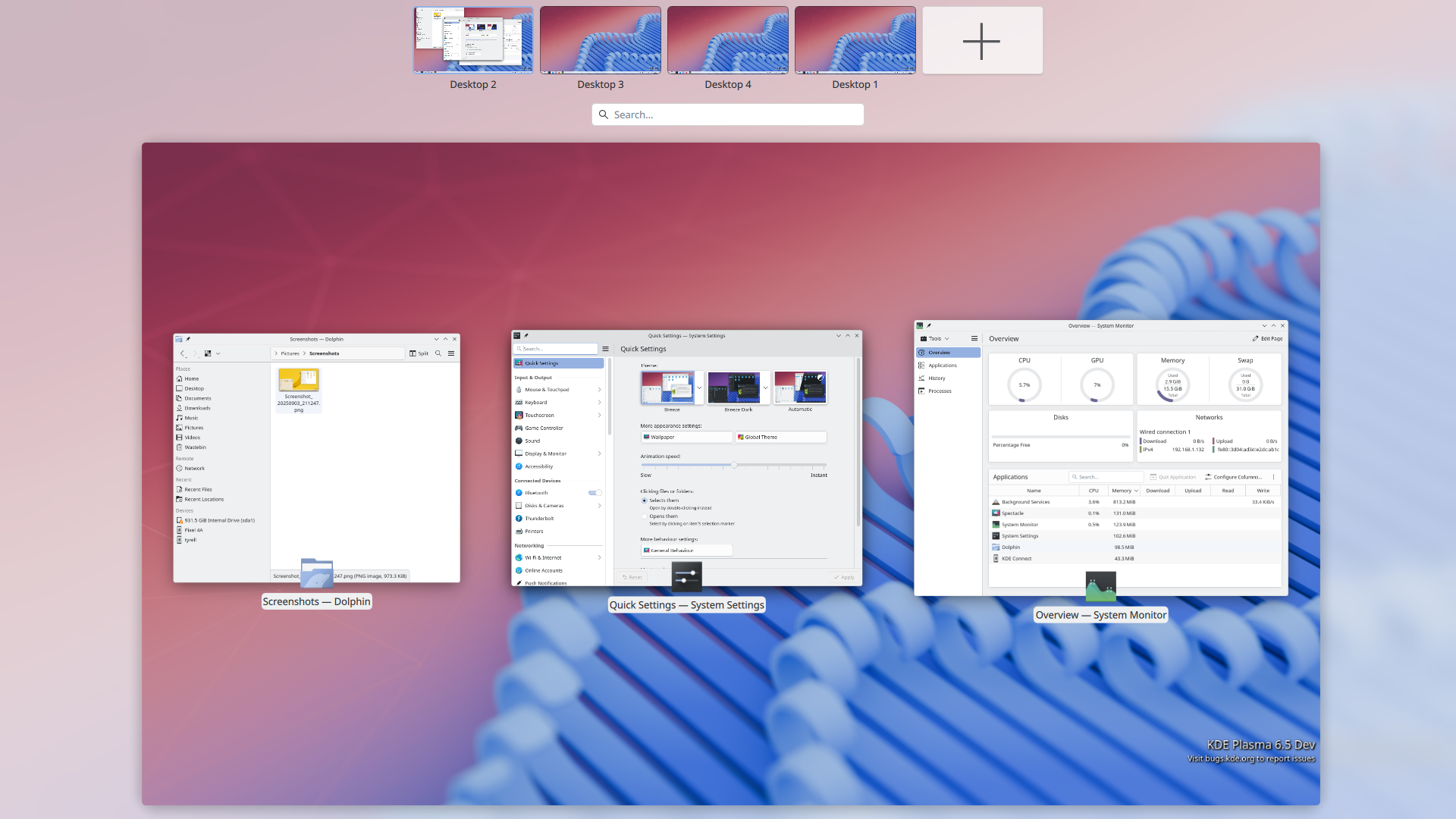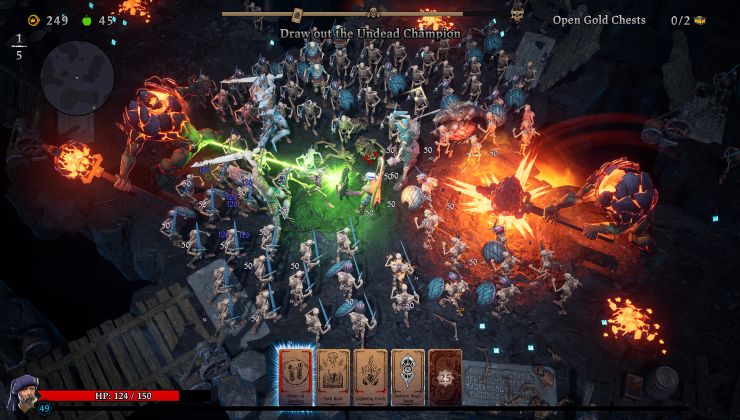The KDE team have been busy, as they're making their own full Linux distro with KDE Linux being a reference implementation OS for Plasma and KDE apps. I did briefly touch on this in a previous GamingOnLinux article but now the Alpha is officially here.
With KDE Linux their aim is to have the absolute best implementation of KDE's software from Plasma itself to the included applications. Along with a quick update cycle to ensure you get all the latest from KDE. From the press release they're hoping this will be "the best choice for home use, enterprise workstations, research centers, public institutions, computers sold at retail, and more".
That said, this first initial release is not meant for everyday use. They said it's aimed at "testers, developers, contributors, early adopters, and tech journalists".


Pictured - KDE Linux, Credit: KDE
Even though this will eventually be a full distribution meant for everyone to use, the point of it is not to discourage other distributions. As they said "KDE Linux may be less optimized and optimizable for specific uses compared to other operating systems" the point is to help "raise the quality level for all KDE-centric operating systems".
At the core it's based on Arch Linux, but it's an immutable base OS, so it acts more like SteamOS with no traditional package manager and they say to not consider it part of the Arch family. It only supports Wayland, apps primarily come from Flatpak and Snap and updates are atomic and image-based, with the last 5 OS images cached on disk for safety.
Exciting times. Perhaps I'll move over from Kubuntu for KDE Linux.

Pictured - KDE Linux, Credit: KDE
See more on the KDE Linux website.
- Snaps: No thanks, I don't want to receive packages from a proprietary source.
- No Fcitx: Sorry, but there are more native Chinese speakers than native English speakers, having an IME is not an excessive luxury (and please, don't use Ibus, that garbage is horrible).
- Random CLI utilities like Duf, Mcfly: Frankly, quite pointless.
- Nano: Vim is already selected and is just better, no point in adding nano.
But most importantly: an immutable OS based on Arch? Absolutely lovely, if the KDE devs could just reach out to the Arkane Linux team to collaborate it could be an absolute game changer.
I hope this will be the future distro to recommend!
Immutable base seems like a great idea - I spend way too much time trying to recover from a broken update...Either you are doing something horribly wrong, or you need to find a better distro. I haven't had my operating system break doing a simple update since I stopped using Gentoo two-decades ago, which, at the time, was notorious for that sort of thing.
Either you are doing something horribly wrong, or you need to find a better distro. I haven't had my operating system break doing a simple update since I stopped using Gentoo two-decades ago, which, at the time, was notorious for that sort of thing.It was a thing with Arch about 5-10ish years ago (afterwards I gave up on Arch/Linux altogether for a while).
And just the other day upgrading Debian to Trixie on RPi failed and had to juggle some libs over ssh... luckily I was able to recover without the reinstal but meh.
All in all - immutable distro solve the issue just fine and I could put Linux on my father machine without the worry that something would break that simple "restore previous version" wouldn't fix...
All in all - immutable distro solve the issue just fine and I could put Linux on my father machine without the worry that something would break that simple "restore previous version" wouldn't fix...You can always do traditional backups or file system level snapshots without resorting to full-blown immutable distributions. But to each their own.
- No Fcitx: Sorry, but there are more native Chinese speakers than native English speakers, having an IME is not an excessive luxury (and please, don't use Ibus, that garbage is horrible).I'm glad someone else gets it. I swear the only reason it sticks around is because the people who call the shots on most distros speak non-IME languages like English and German to which IBus "gets the job done". If you speak a language that requires an IME (Chinese, Japanese, Korean, etc.) then it's just an painfully buggy experience and you'd be much better off with Fcitx 99.9% of the time.
also ... that name. So generic, and confusing. Every single distro out there can be a "kde linux" by just simply using kde on it.
I'm glad KDE has their own in-house distro, there's just so many questions.
Last edited by Jarmer on 8 Sep 2025 at 3:57 pm UTC
Using a mutable distro with BTRFS snapshots has been the best of both worlds for meSame I'm just on EndeavourOS with BTRFS + snapshots and I haven't had any issues on top of that for years 0:
I think it's good that the KDE project is working on fully featured operating system. I'm less excited about the decision to use Arch. Nothing against Arch in general but I just tend to prefer other distro's.I agree with you. However with a immutable distro the base is "not that important" for the user as they don't really interact with it anyway. I can see why KDE chose Arch. Bleeding-edge packages, synergies with Valve and Steam OS and just generally Arch having wind in it's sails atm.
I'm less concerned with snap/flatpaks/etc. to be honest. They aren't my favorite but I can see the industry and other groups moving to them. They make tools approachable for a general audience and I think that is mostly a good thing. The Linux community has been mostly shielded from bad actors and viruses. Sure we've had a few but nothing at the scale of the Windows community. Newer tools change that for sure, but I don't think they are necessarily a five-alarm fire.
With all the new users, the Windows 10 stuff, etc. it makes sense that there are going to be brand new solutions. It's cool the community is evolving.
If you need packages outside Flathub, then they're not for you. However, if you're someone like me who likes Flatpak and can get everything he needs from there, immutable is great. Ever since I switched to Bazzite + Aurora, I don't have to think about anything. Everything just works, no stability issues whatsoever.
That said, I do question why KDE installed Dolphin as a Flatpak rather than baking it into the OS image. In my opinion, the file manager is best installed as a native package. SteamOS, Bazzite and Aurora all do this; yet, KDE went with the Dolphin Flatpak. I hope that doesn't cause issues.
EDIT: It turns out I was mistaken about Dolphin being installed as a Flatpak. This was done on the pre-alpha, but the Alpha release does have Dolphin, Arc and other utilities baked into the OS image.
Last edited by CyborgZeta on 14 Sep 2025 at 1:06 am UTC
That said, I do question why KDE installed Dolphin as a Flatpak rather than baking it into the OS image. In my opinion, the file manager is best installed as a native package.As far as I understand it, one of the goals is to improve the quality of KDE Flatpaks, so it might be on purpose












 How to setup OpenMW for modern Morrowind on Linux / SteamOS and Steam Deck
How to setup OpenMW for modern Morrowind on Linux / SteamOS and Steam Deck How to install Hollow Knight: Silksong mods on Linux, SteamOS and Steam Deck
How to install Hollow Knight: Silksong mods on Linux, SteamOS and Steam Deck